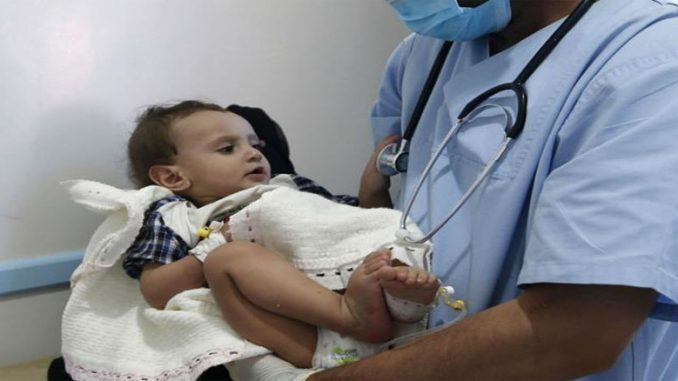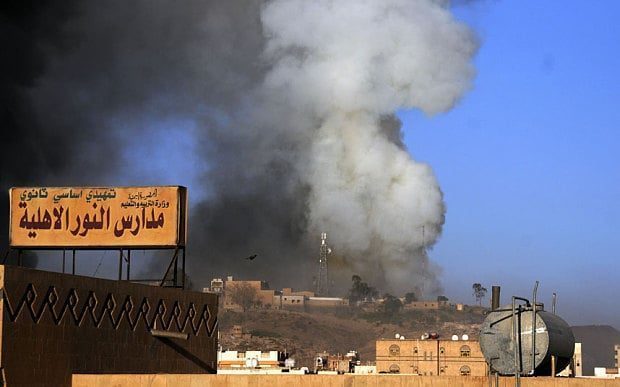
The bacterial infection was at large instigated by the Houthi-run Sana’a government’s neglect of environmental hygiene, experts say.
The number of deaths from the cholera epidemic in Yemen has surpassed 470, according to figures released by the World Health Organisation (WHO) on Monday.
WHO’s latest bulletin, which has covered the period from 27th April said that the death toll of people who have died from the disease has risen to 471, though added that there was a “significant decrease” in the number of people being diagnosed with the disease per day.
“The average daily number of cases recorded between 21-27 May was 2,529 – down from 3,025 in the previous seven days,” the report said.
The bacterial infection was at large instigated by the Houthi-run Sana’a government’s neglect of environmental hygiene, experts say.
“The Sana’a government has cut down the salaries of the cleaning staff for almost six months from now,” UN Environment Regional Representative for Civil Society NGOs in West Asia, Tareq Hassan told The New Arab, referring to the rebel-held territory.
The spat between the Houthi government, which came into power through a coup in September 2014 and public sector workers has had detrimental effects on the local community.
The Houthi-run health ministry has even admitted that it was “unable to contain this disaster” in a statement carried more than two weeks ago by the rebels’ Saba News Agency.
The Saudi-led coalition’s war in Yemen has also contributed to the cholera outbreak, by further devestating Yemen’s healthcare infrastructure.
Earlier this month, UNICEF announced that some $2 million has been allocated to tackle Yemen’s deteriorating cholera crisis, as authorities declared a state of emergency in the war-torn country.
The United Nations, which has called Yemen “the largest humanitarian crisis in the world”, recently estimated that more than 10,000 people have been killed since 2015 and three million displaced. The actual death toll may be higher.
Some 17 million also lack adequate food, with one third of the country’s provinces on the brink of famine.



